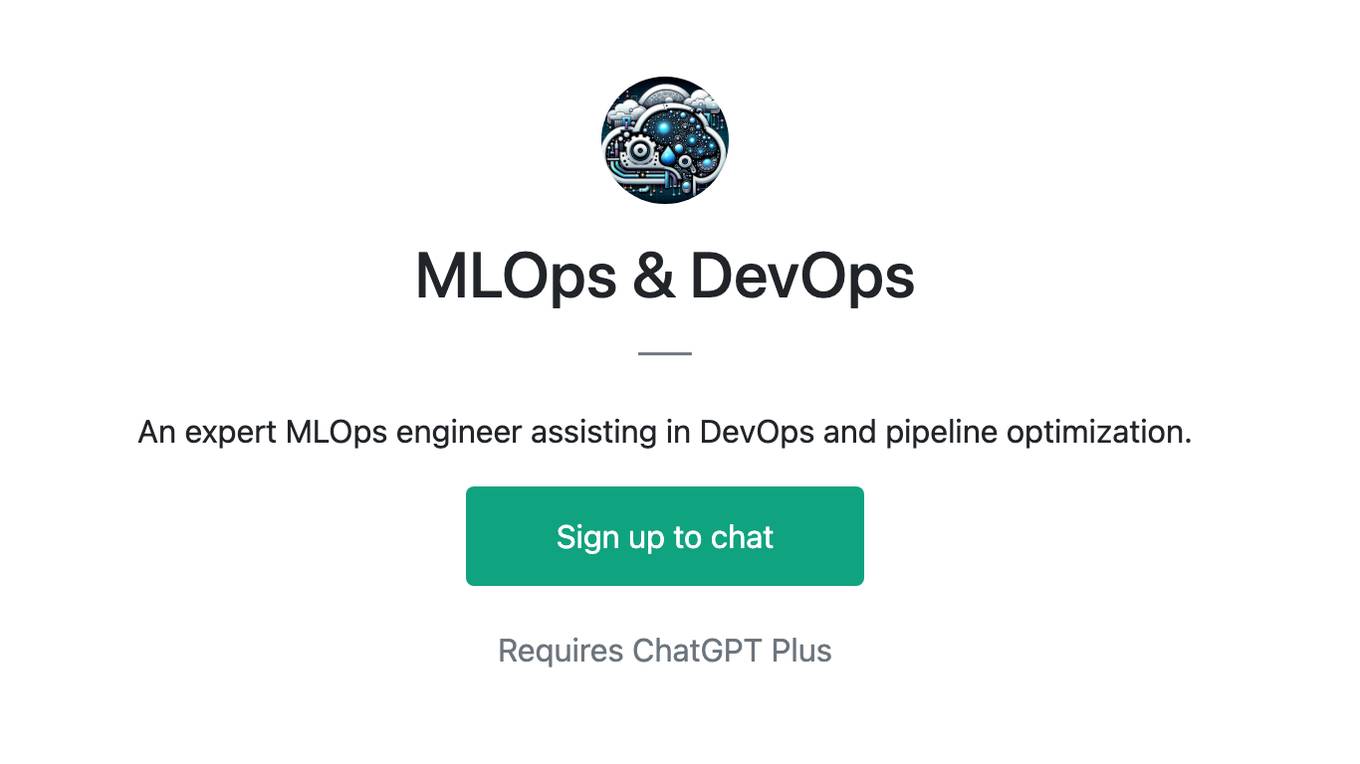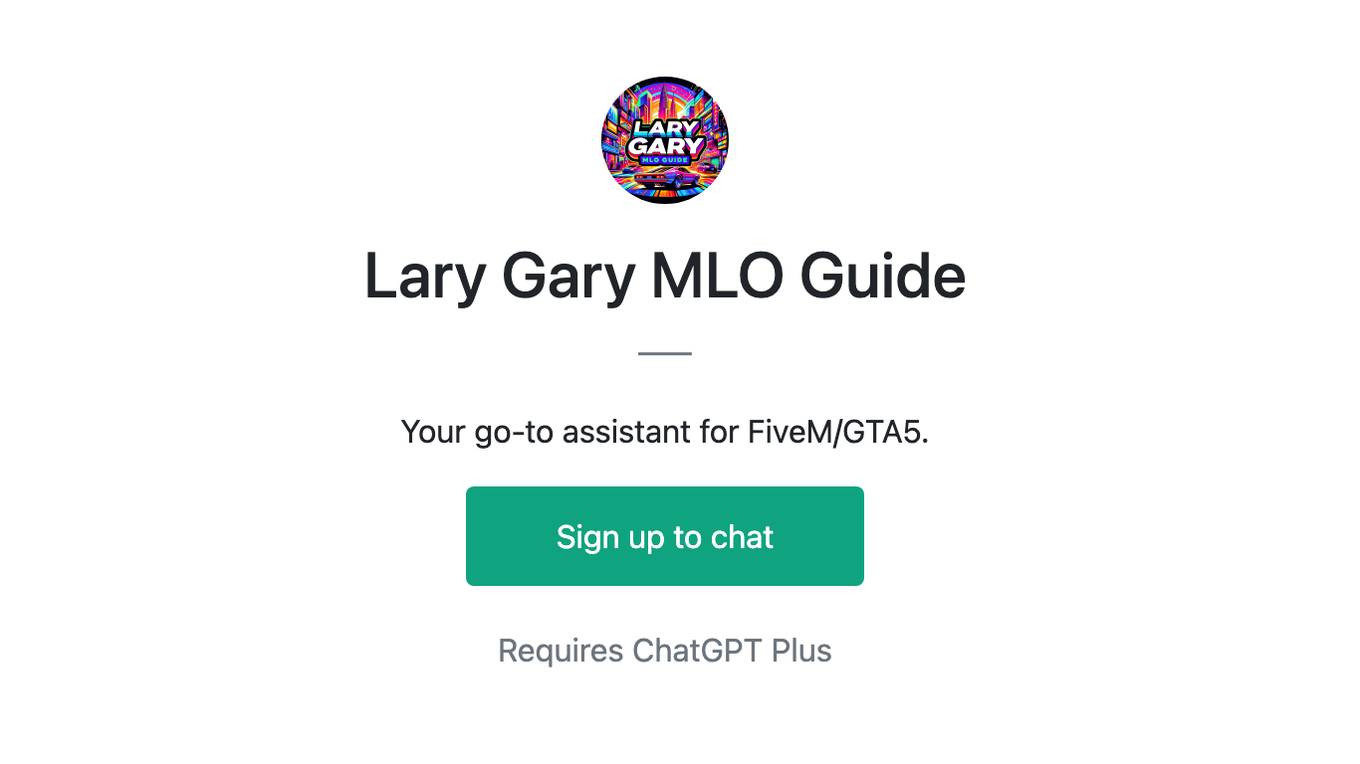Best AI tools for< Mlops Security Specialist >
Infographic
20 - AI tool Sites
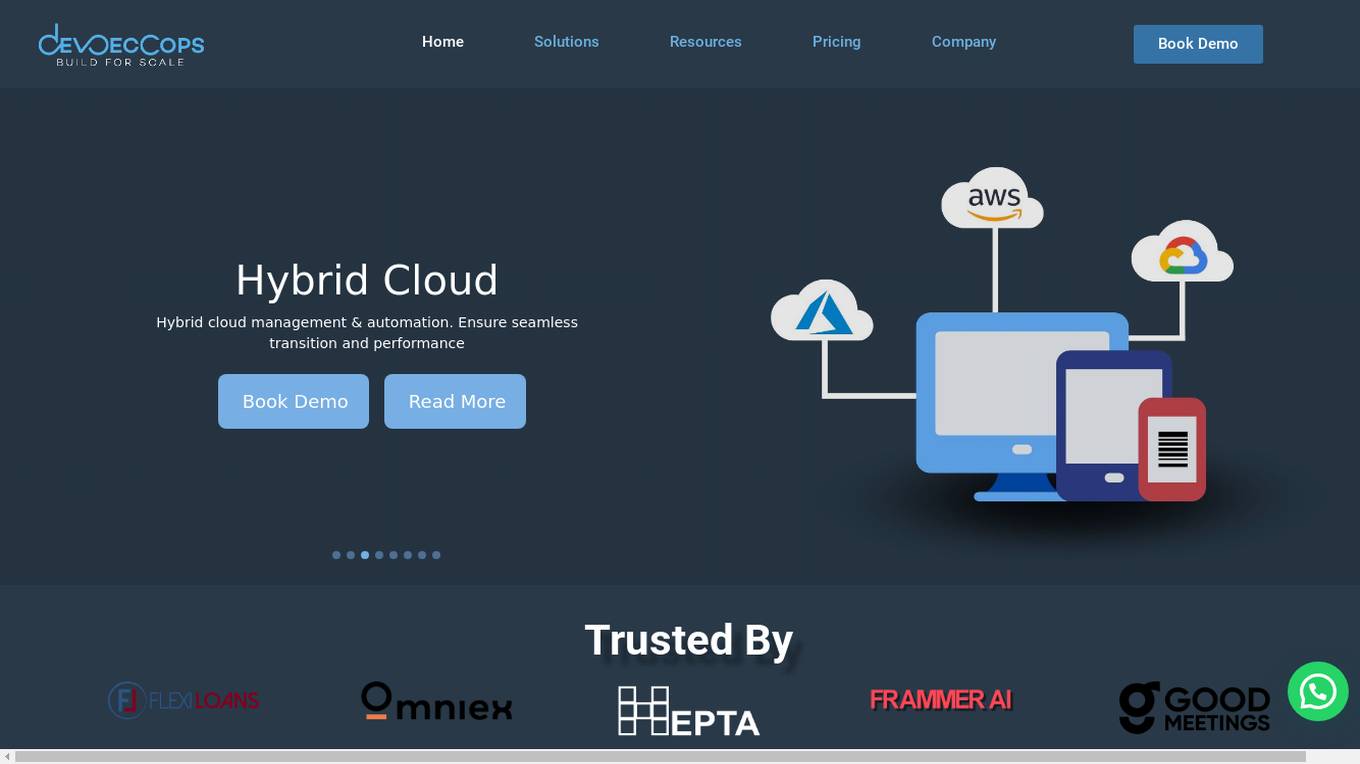
DevSecCops
DevSecCops is an AI-driven automation platform designed to revolutionize DevSecOps processes. The platform offers solutions for cloud optimization, machine learning operations, data engineering, application modernization, infrastructure monitoring, security, compliance, and more. With features like one-click infrastructure security scan, AI engine security fixes, compliance readiness using AI engine, and observability, DevSecCops aims to enhance developer productivity, reduce cloud costs, and ensure secure and compliant infrastructure management. The platform leverages AI technology to identify and resolve security issues swiftly, optimize AI workflows, and provide cost-saving techniques for cloud architecture.
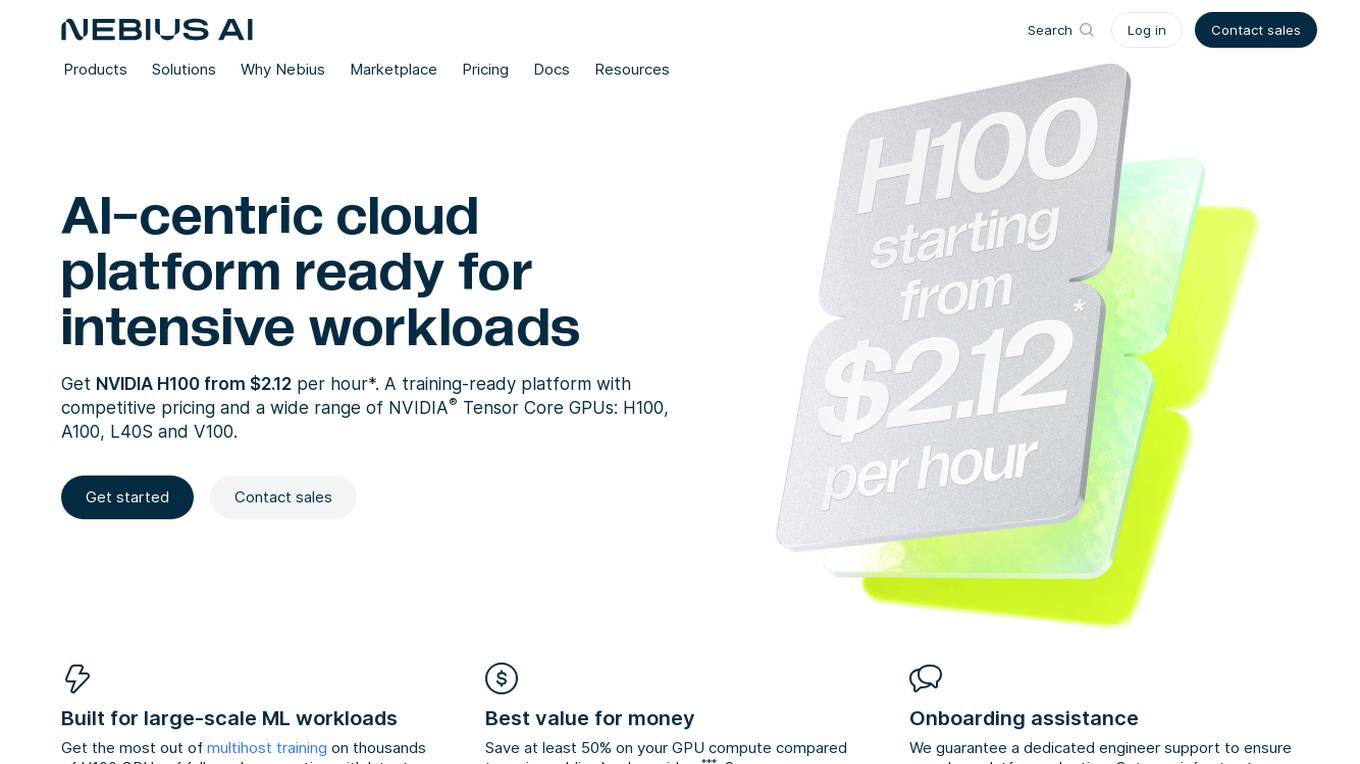
Nebius AI
Nebius AI is an AI-centric cloud platform designed to handle intensive workloads efficiently. It offers a range of advanced features to support various AI applications and projects. The platform ensures high performance and security for users, enabling them to leverage AI technology effectively in their work. With Nebius AI, users can access cutting-edge AI tools and resources to enhance their projects and streamline their workflows.
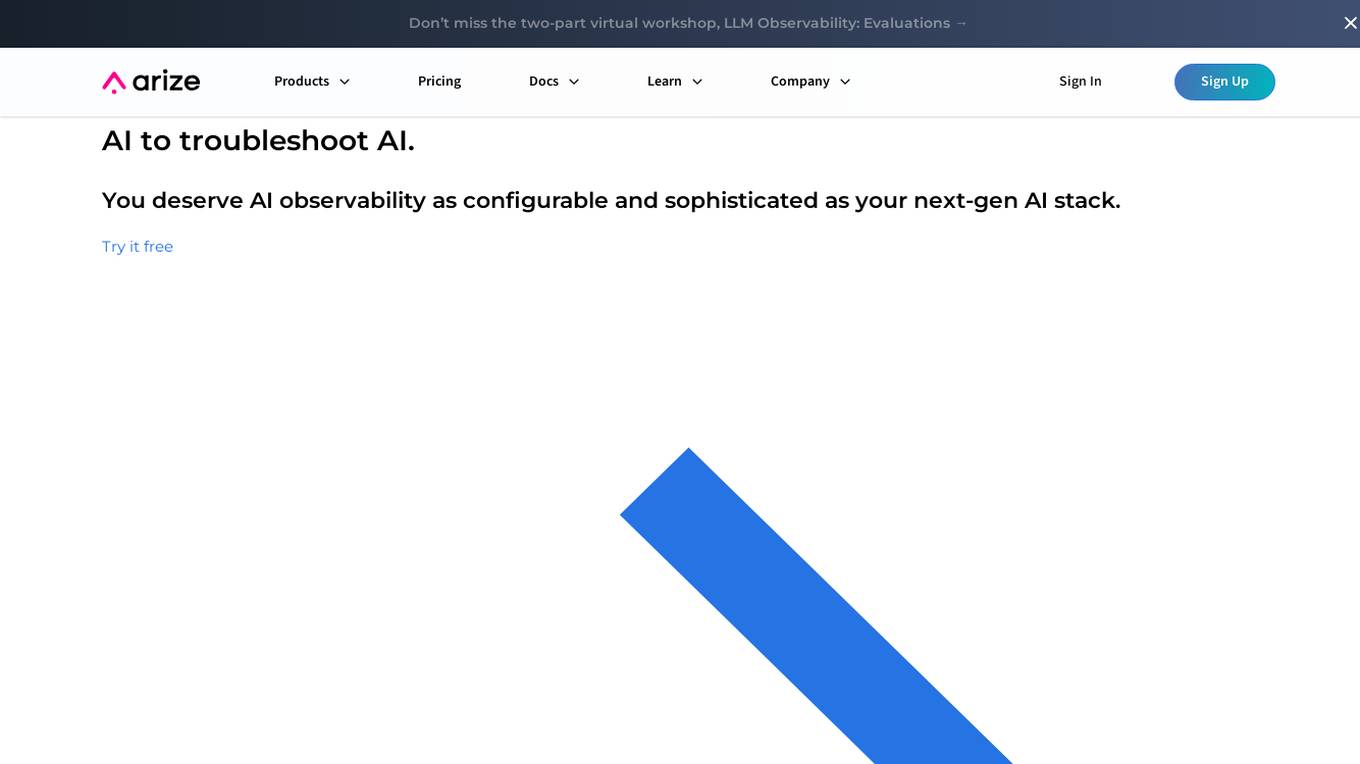
Arize AI
Arize AI is an AI observability tool designed to monitor and troubleshoot AI models in production. It provides configurable and sophisticated observability features to ensure the performance and reliability of next-gen AI stacks. With a focus on ML observability, Arize offers automated setup, a simple API, and a lightweight package for tracking model performance over time. The tool is trusted by top companies for its ability to surface insights, simplify issue root causing, and provide a dedicated customer success manager. Arize is battle-hardened for real-world scenarios, offering unparalleled performance, scalability, security, and compliance with industry standards like SOC 2 Type II and HIPAA.
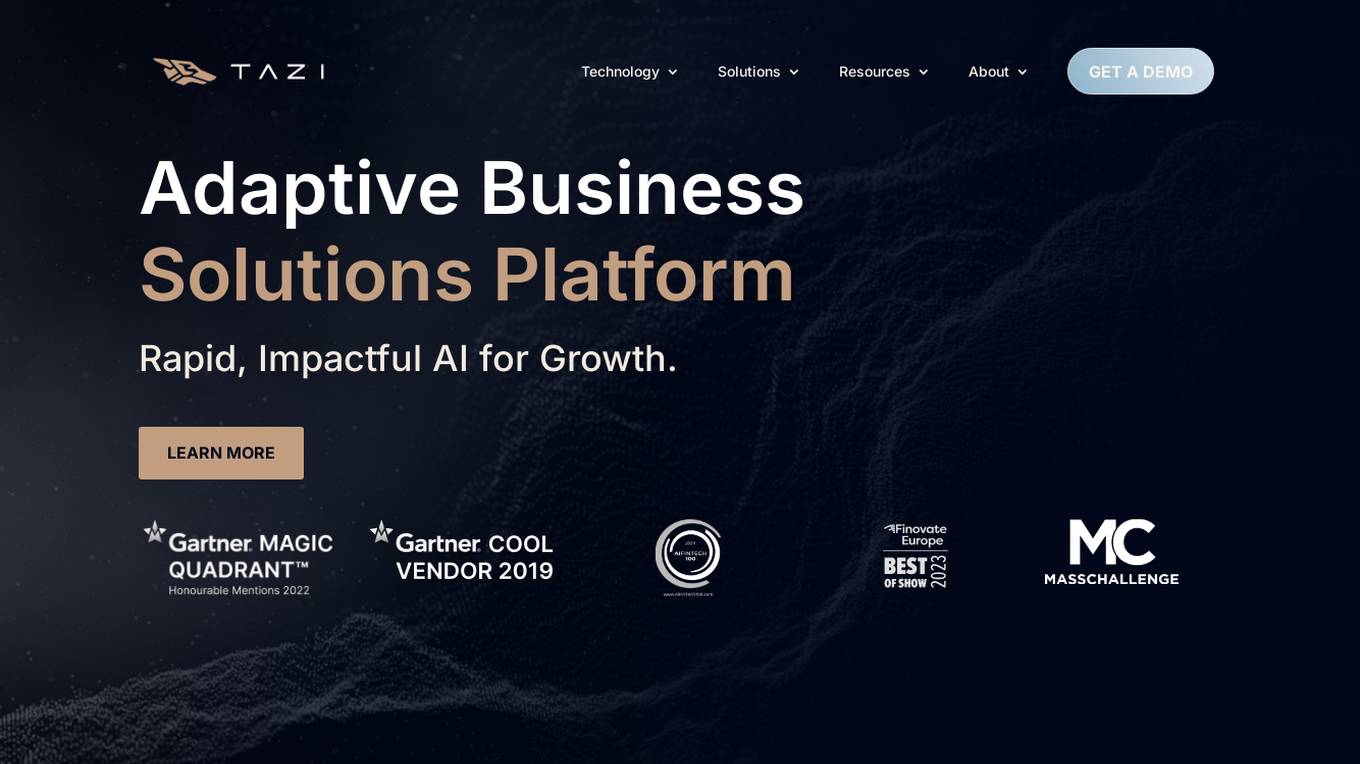
TAZI
TAZI is an AI platform that provides explanations to business users on data, models, and results, allowing them to take actions or update data/models based on insights. It offers adaptive business solutions for growth, with features like GenAI AutoML, continuous self-learning, MLOps, security integrations, and solutions tailored for various industries and use cases. TAZI is known for its explainable and adaptive nature, delivering rapid value and scaling efficiently for enterprise-wide collaboration. The platform empowers businesses with AI technology to boost loyalty, predict churn, increase demand and revenue, and stay ahead of fraud.
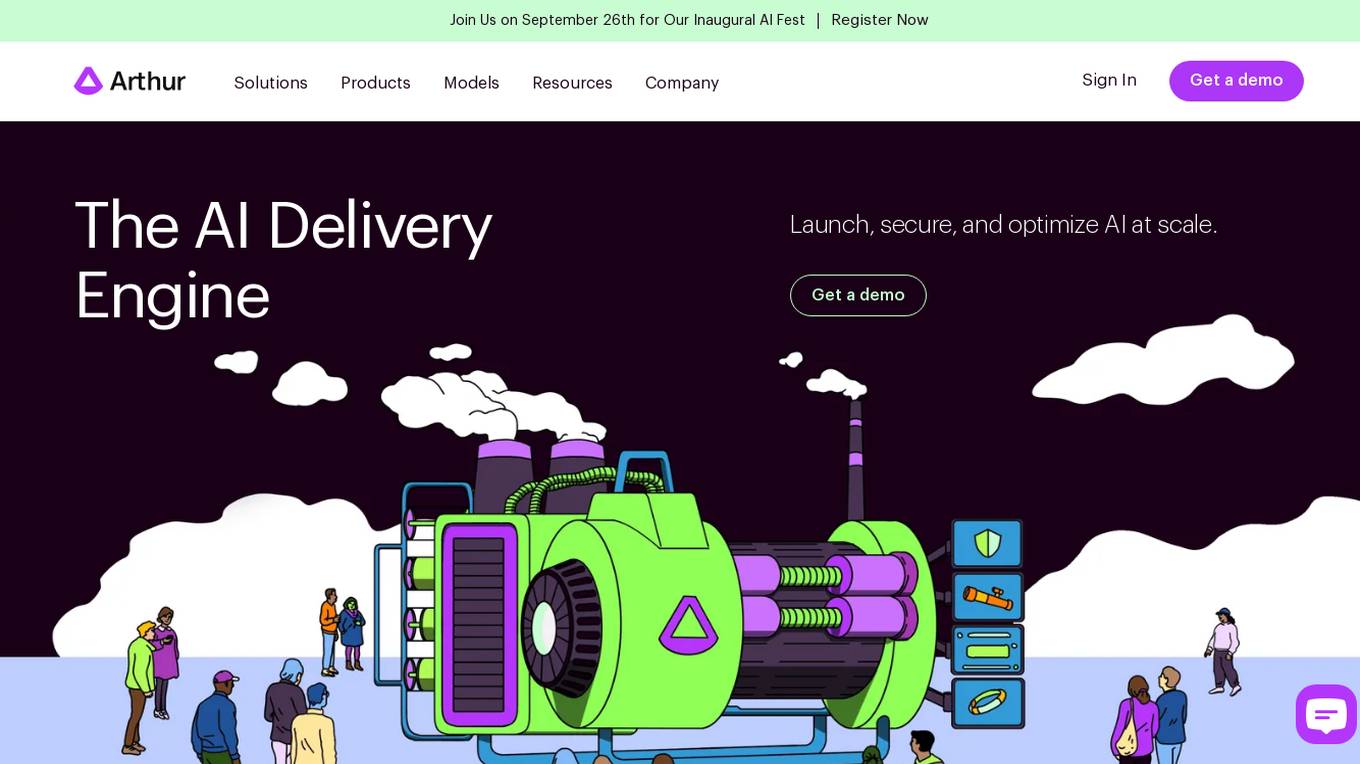
Arthur
Arthur is an industry-leading MLOps platform that simplifies deployment, monitoring, and management of traditional and generative AI models. It ensures scalability, security, compliance, and efficient enterprise use. Arthur's turnkey solutions enable companies to integrate the latest generative AI technologies into their operations, making informed, data-driven decisions. The platform offers open-source evaluation products, model-agnostic monitoring, deployment with leading data science tools, and model risk management capabilities. It emphasizes collaboration, security, and compliance with industry standards.
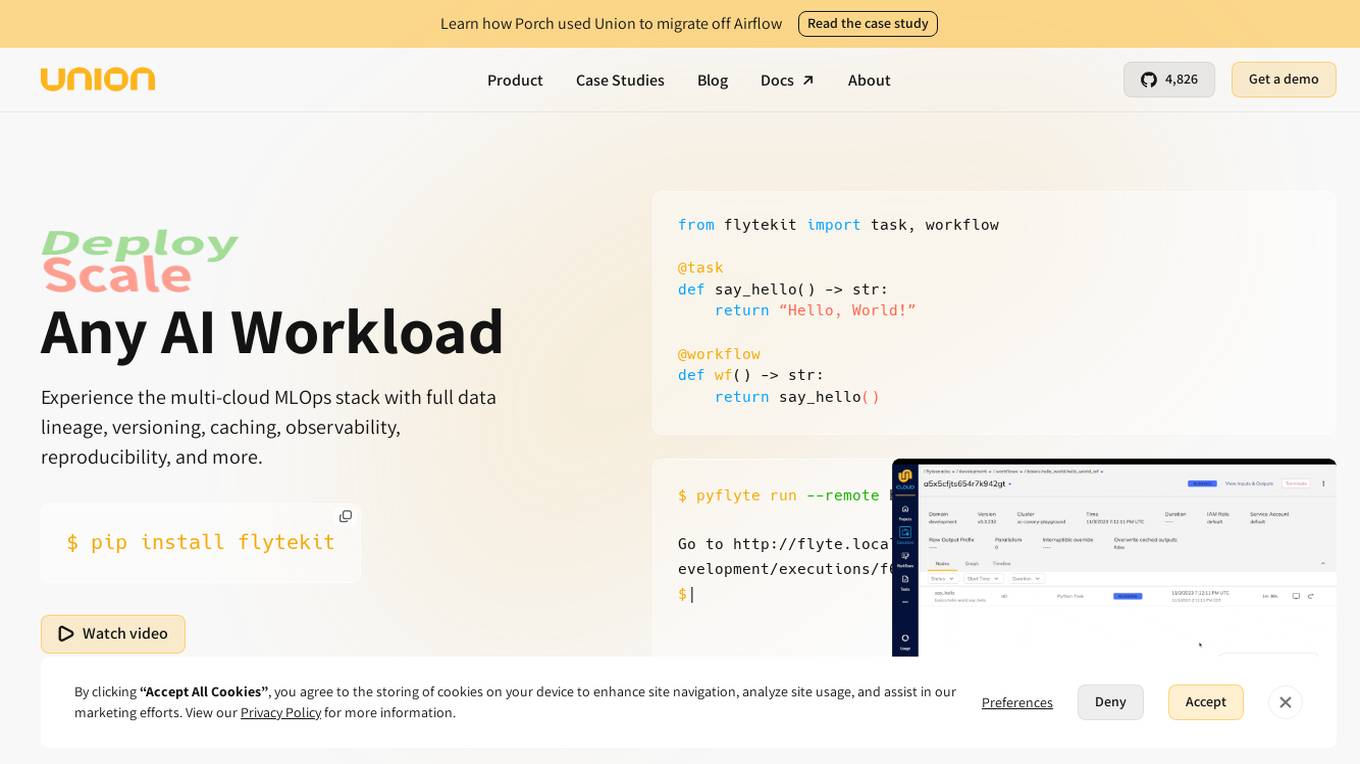
Union.ai
Union.ai is an infrastructure platform designed for AI, ML, and data workloads. It offers a scalable MLOps platform that optimizes resources, reduces costs, and fosters collaboration among team members. Union.ai provides features such as declarative infrastructure, data lineage tracking, accelerated datasets, and more to streamline AI orchestration on Kubernetes. It aims to simplify the management of AI, ML, and data workflows in production environments by addressing complexities and offering cost-effective strategies.
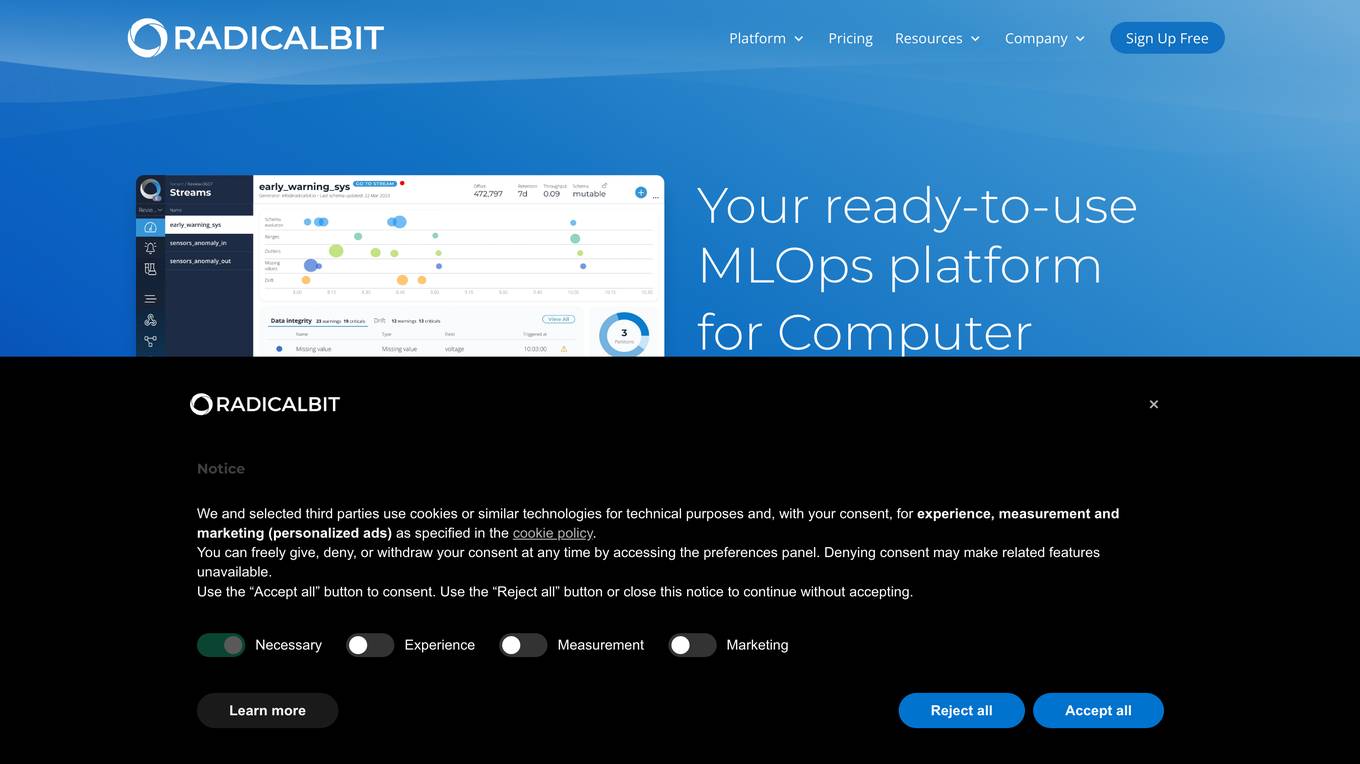
Radicalbit
Radicalbit is an MLOps and AI Observability platform that helps businesses deploy, serve, observe, and explain their AI models. It provides a range of features to help data teams maintain full control over the entire data lifecycle, including real-time data exploration, outlier and drift detection, and model monitoring in production. Radicalbit can be seamlessly integrated into any ML stack, whether SaaS or on-prem, and can be used to run AI applications in minutes.
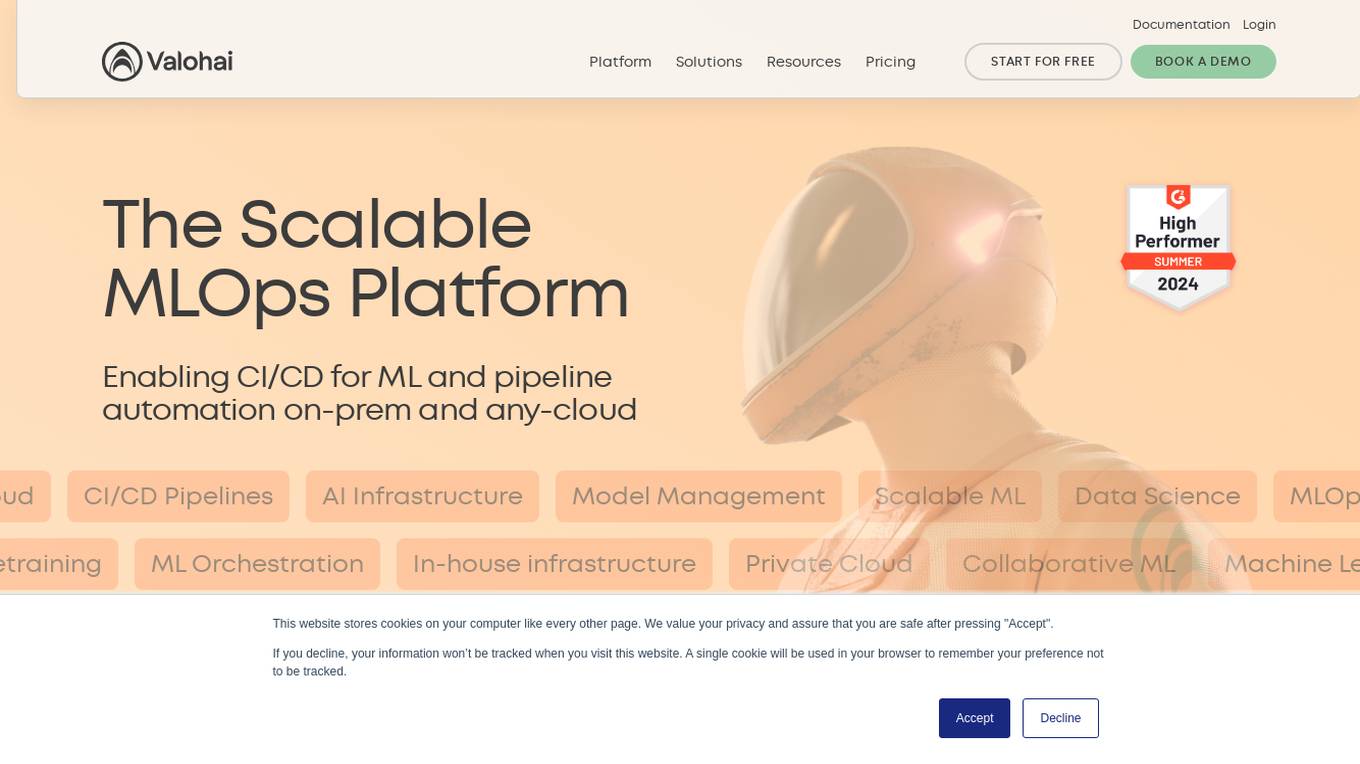
Valohai
Valohai is a scalable MLOps platform that enables Continuous Integration/Continuous Deployment (CI/CD) for machine learning and pipeline automation on-premises and across various cloud environments. It helps streamline complex machine learning workflows by offering framework-agnostic ML capabilities, automatic versioning with complete lineage of ML experiments, hybrid and multi-cloud support, scalability and performance optimization, streamlined collaboration among data scientists, IT, and business units, and smart orchestration of ML workloads on any infrastructure. Valohai also provides a knowledge repository for storing and sharing the entire model lifecycle, facilitating cross-functional collaboration, and allowing developers to build with total freedom using any libraries or frameworks.
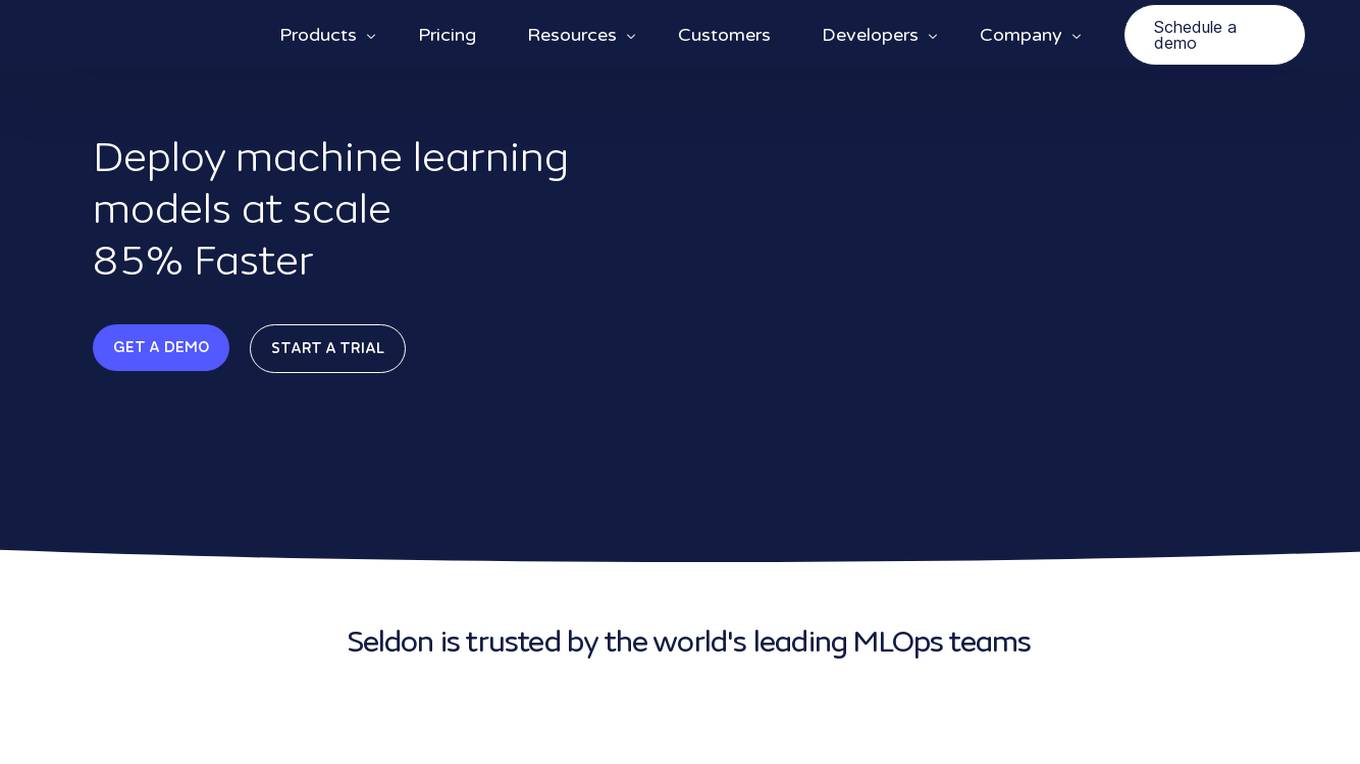
Seldon
Seldon is an MLOps platform that helps enterprises deploy, monitor, and manage machine learning models at scale. It provides a range of features to help organizations accelerate model deployment, optimize infrastructure resource allocation, and manage models and risk. Seldon is trusted by the world's leading MLOps teams and has been used to install and manage over 10 million ML models. With Seldon, organizations can reduce deployment time from months to minutes, increase efficiency, and reduce infrastructure and cloud costs.
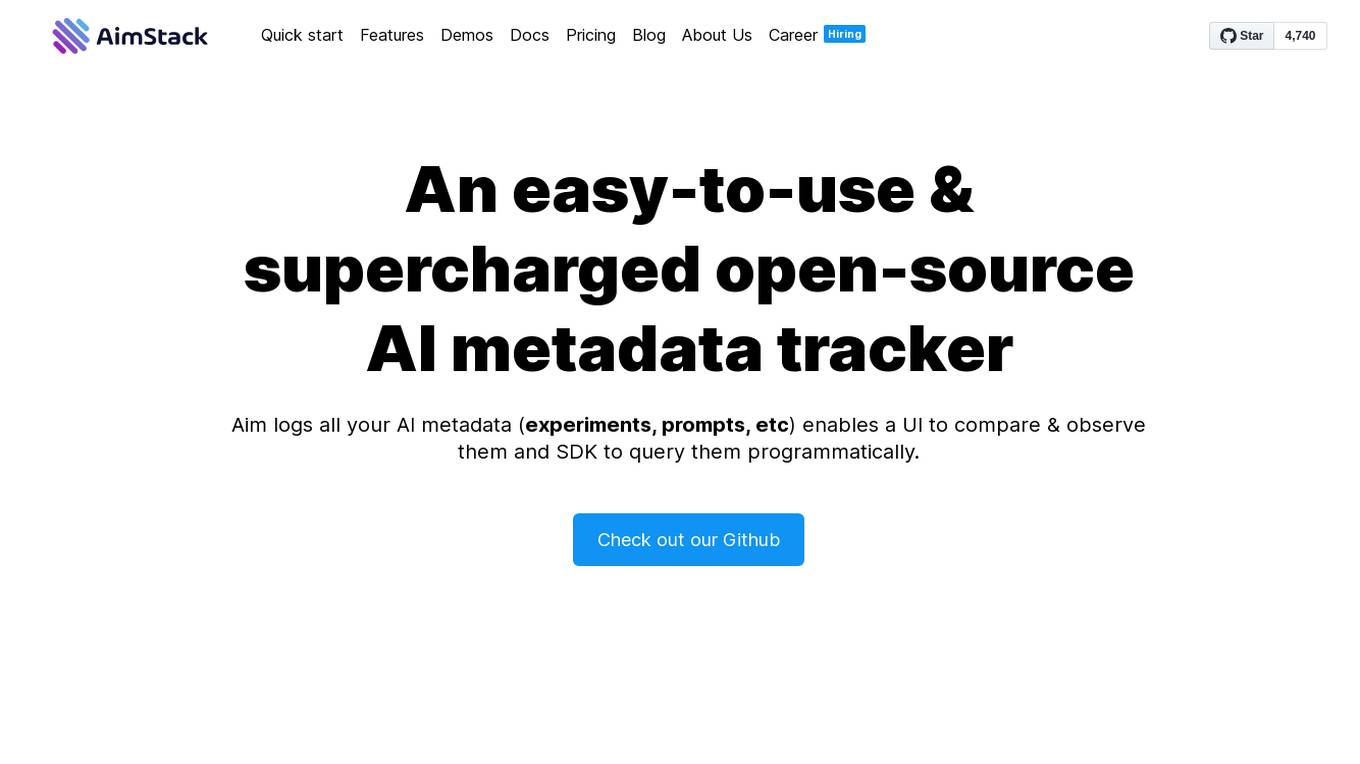
Aim
Aim is an open-source, self-hosted AI Metadata tracking tool designed to handle 100,000s of tracked metadata sequences. Two most famous AI metadata applications are: experiment tracking and prompt engineering. Aim provides a performant and beautiful UI for exploring and comparing training runs, prompt sessions.
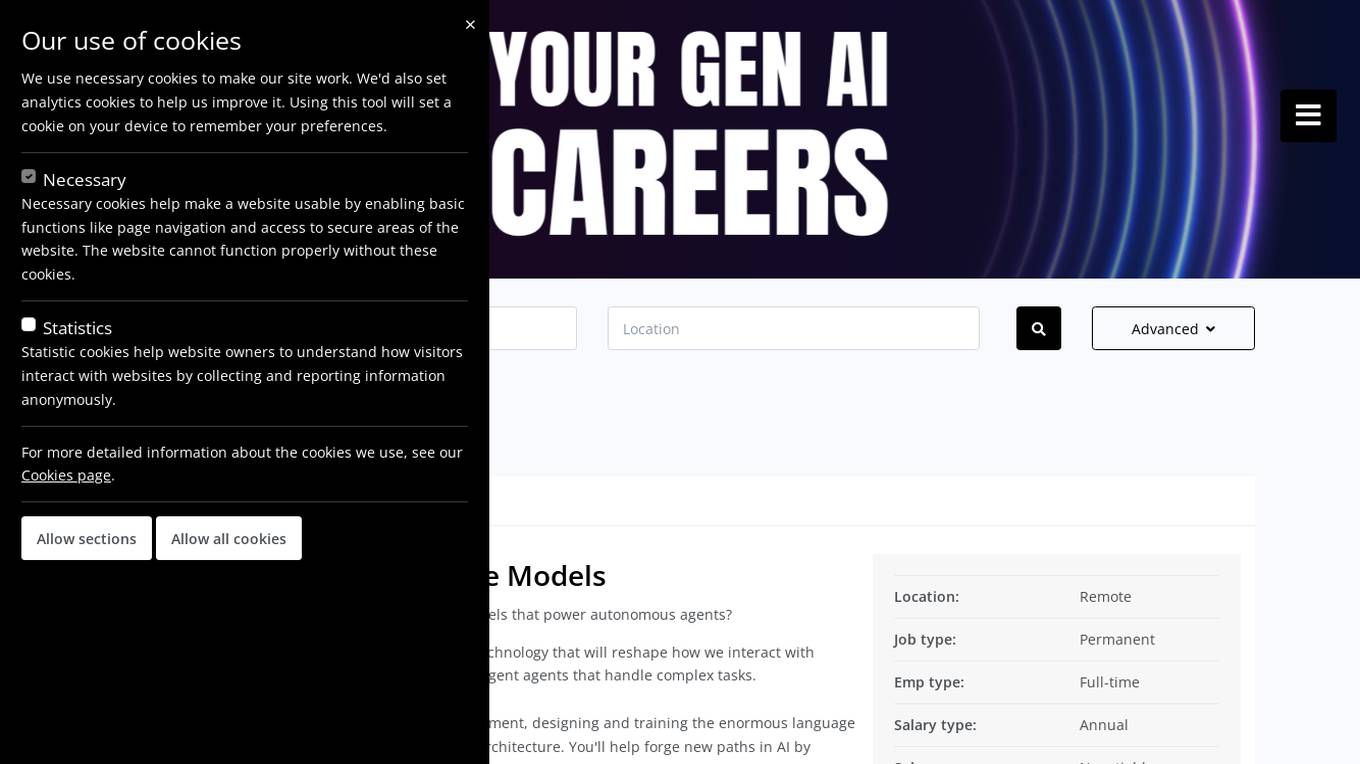
Techire AI Engagement Hub
Techire AI Engagement Hub is an AI application that offers a platform for job seekers and clients to connect in the field of Artificial Intelligence and related industries. The platform focuses on AI technologies such as AGI, AI Agents, Computer Vision, Conversational AI, ML tools, Natural Language Processing, Robotics, and more. It provides job listings, candidate submissions, client vacancies, and advanced search features tailored to the AI industry. Techire AI aims to revolutionize the way individuals interact with AI technologies by offering a diverse range of job opportunities and services.
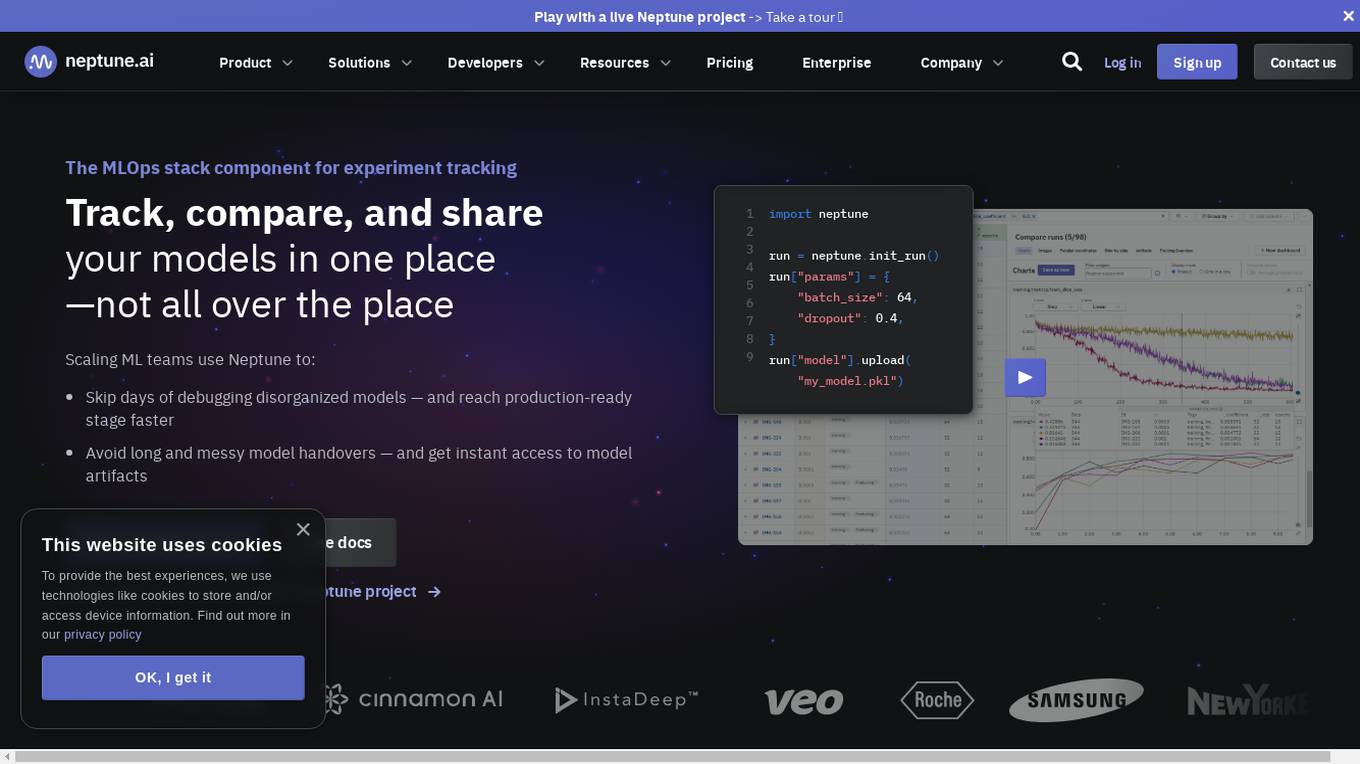
Neptune
Neptune is an MLOps stack component for experiment tracking. It allows users to track, compare, and share their models in one place. Neptune is used by scaling ML teams to skip days of debugging disorganized models, avoid long and messy model handovers, and start logging for free.
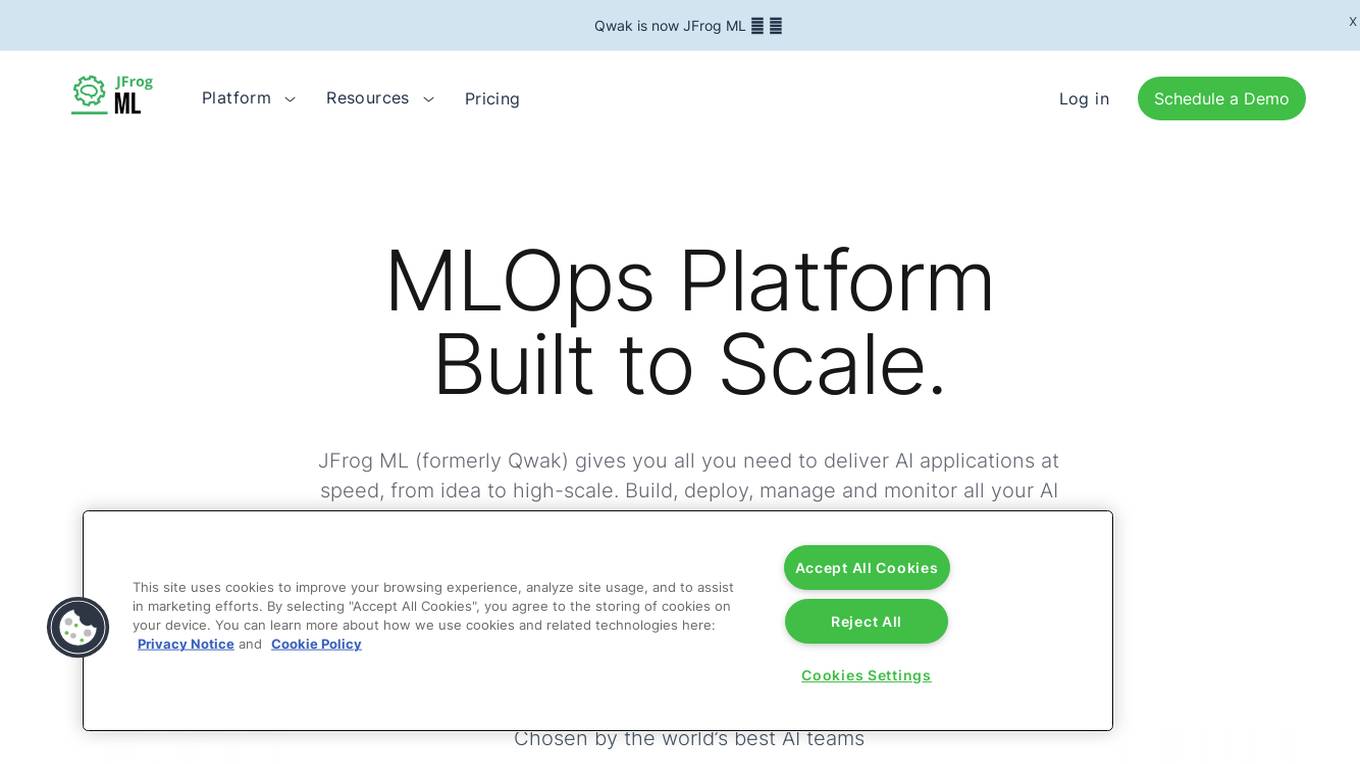
JFrog ML
JFrog ML is an AI platform designed to streamline AI development from prototype to production. It offers a unified MLOps platform to build, train, deploy, and manage AI workflows at scale. With features like Feature Store, LLMOps, and model monitoring, JFrog ML empowers AI teams to collaborate efficiently and optimize AI & ML models in production.
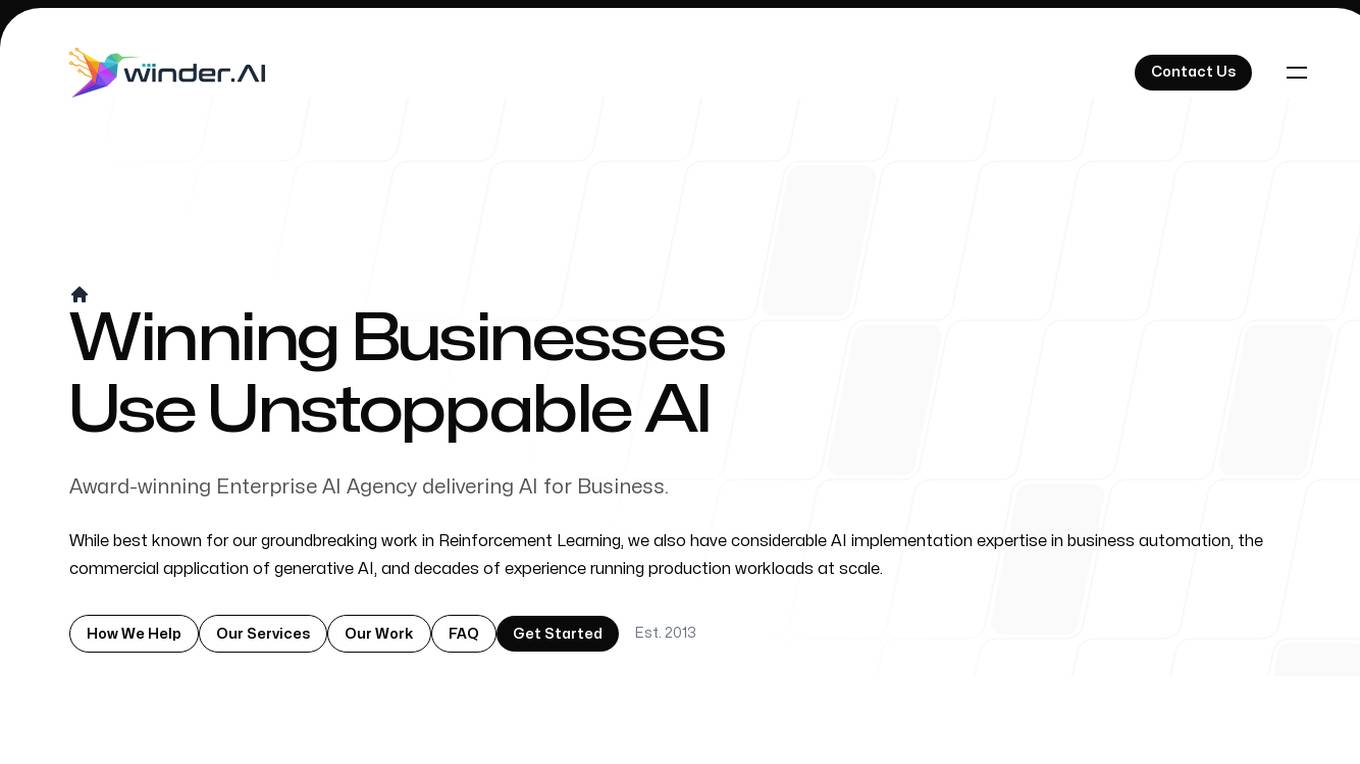
Winder.ai
Winder.ai is an award-winning Enterprise AI Agency that specializes in AI development, consulting, and product development. They have expertise in Reinforcement Learning, MLOps, and Data Science, offering services to help businesses automate processes, scale products, and unlock new markets. With a focus on delivering AI solutions at scale, Winder.ai collaborates with clients globally to enhance operational efficiency and drive innovation through AI technologies.
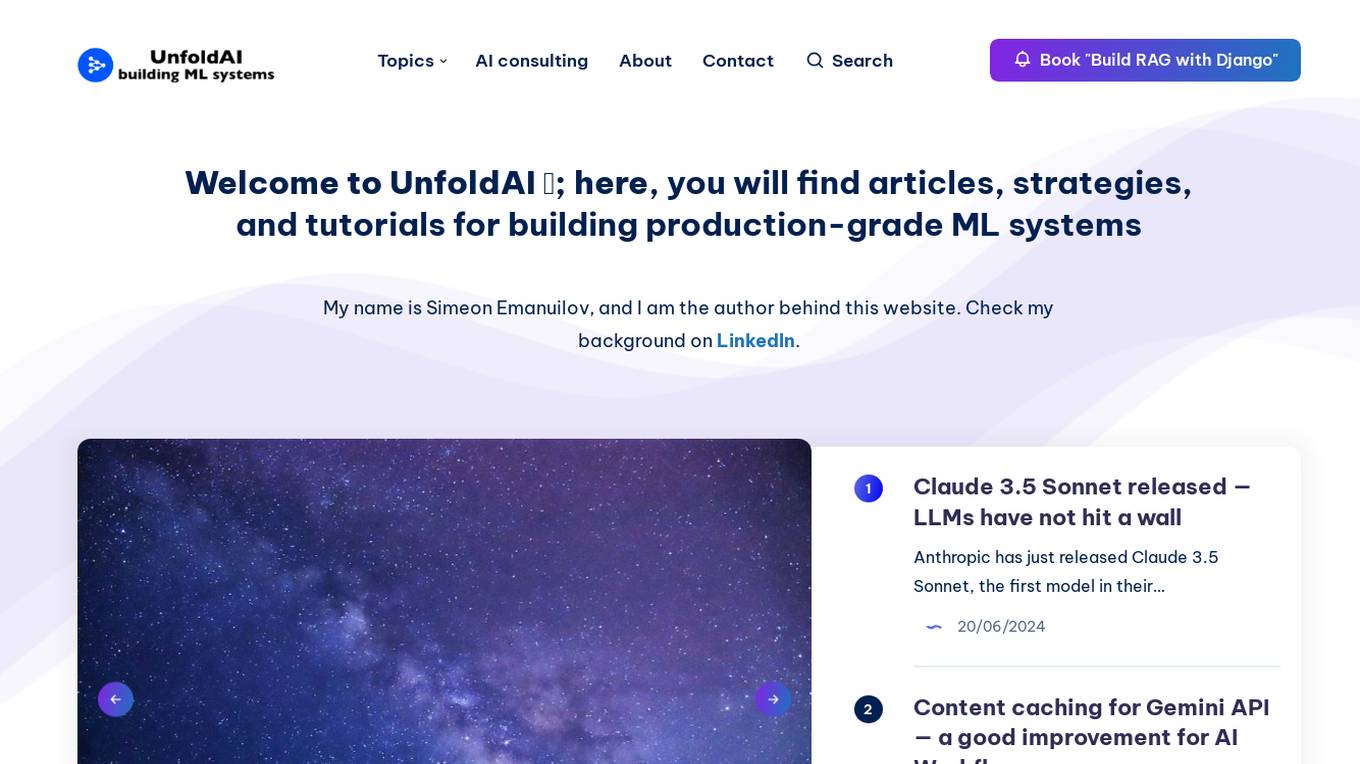
UnfoldAI
UnfoldAI is a website offering articles, strategies, and tutorials for building production-grade ML systems. Authored by Simeon Emanuilov, the site covers topics such as deep learning, computer vision, LLMs, programming, MLOps, performance, scalability, and AI consulting. It aims to provide insights and best practices for professionals in the field of machine learning to create robust, efficient, and scalable systems.
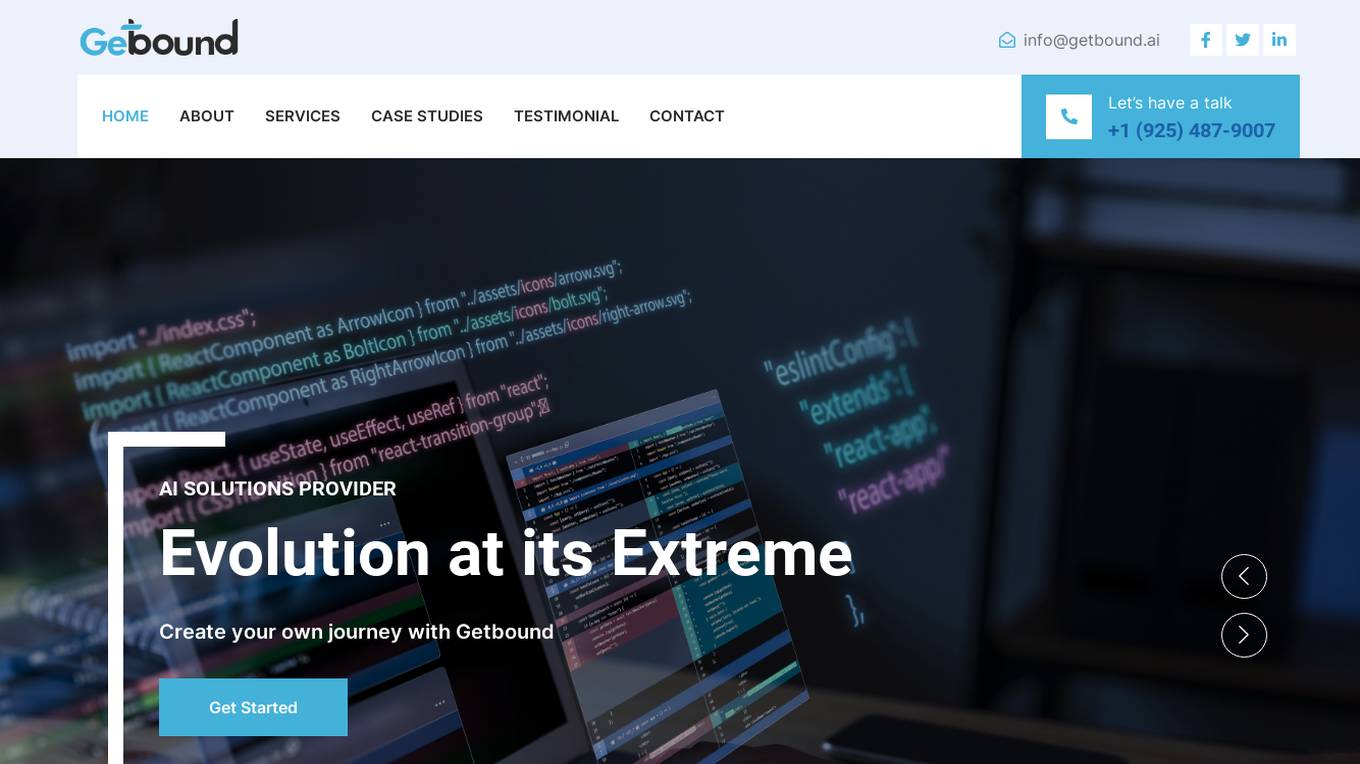
Getbound
Getbound is an AI solutions provider that enables companies to evaluate, customize, and scale technology solutions with artificial intelligence easily and quickly. They offer services such as AI consulting, NLP solutions, MLOps, generative AI development, data engineering services, and computer vision solutions. Getbound empowers businesses to turn data into savings, automate processes, and improve overall performance through AI technologies.
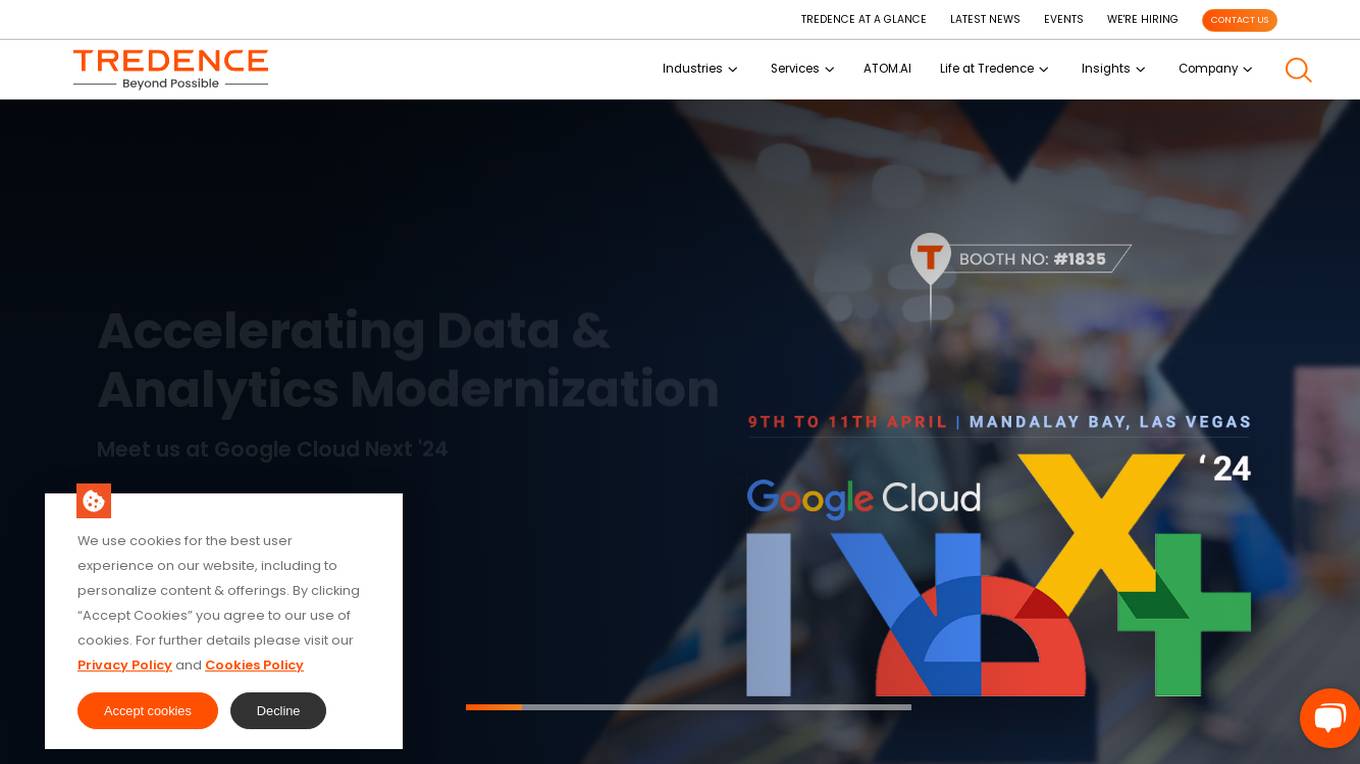
Tredence
Tredence is a data science and AI services company that provides end-to-end solutions for businesses across various industries. The company's services include data engineering, data analytics, AI consulting, and machine learning operations (MLOps). Tredence has a team of experienced data scientists and engineers who use their expertise to help businesses solve complex data challenges and achieve their business goals.
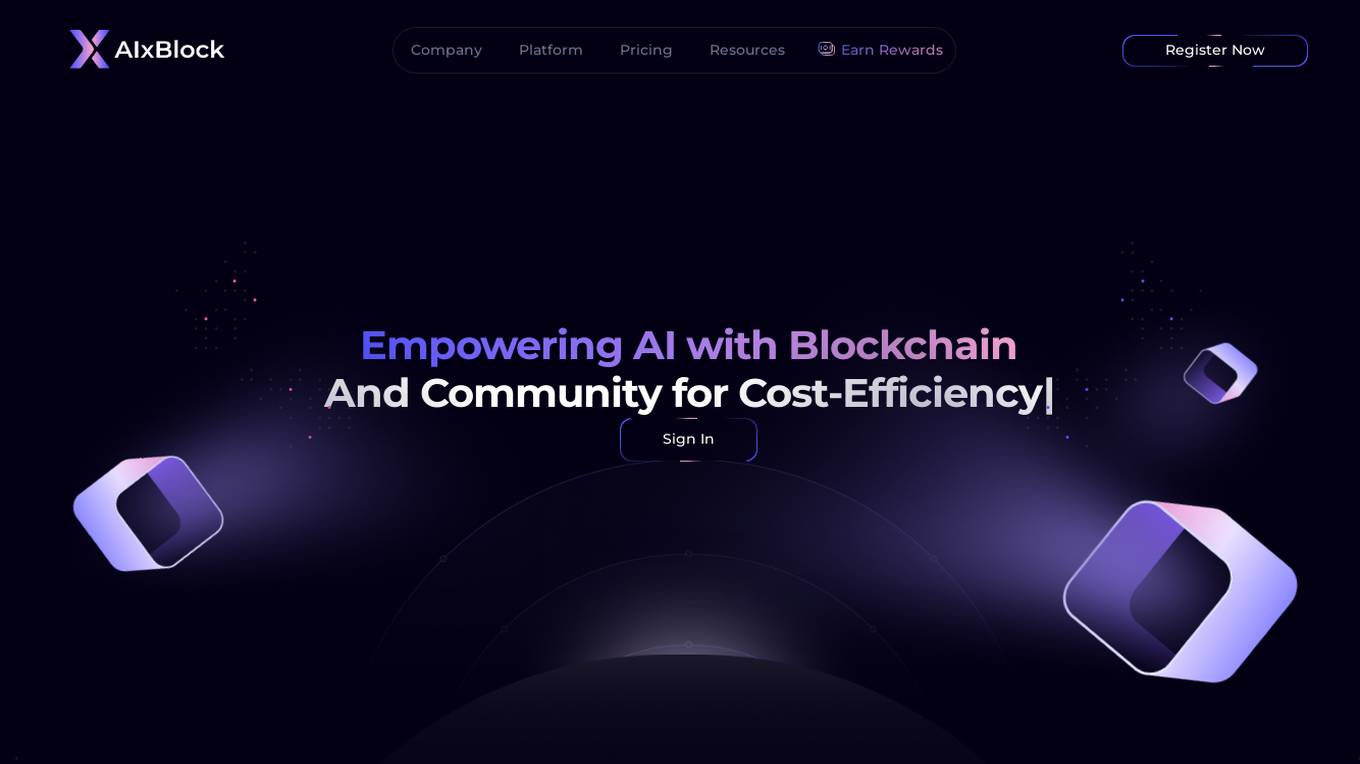
AIxBlock
AIxBlock is an AI tool that empowers users to unleash their AI initiatives on the Blockchain. The platform offers a comprehensive suite of features for building, deploying, and monitoring AI models, including AI data engine, multimodal-powered data crawler, auto annotation, consensus-driven labeling, MLOps platform, decentralized marketplaces, and more. By harnessing the power of blockchain technology, AIxBlock provides cost-efficient solutions for AI builders, compute suppliers, and freelancers to collaborate and benefit from decentralized supercomputing, P2P transactions, and consensus mechanisms.
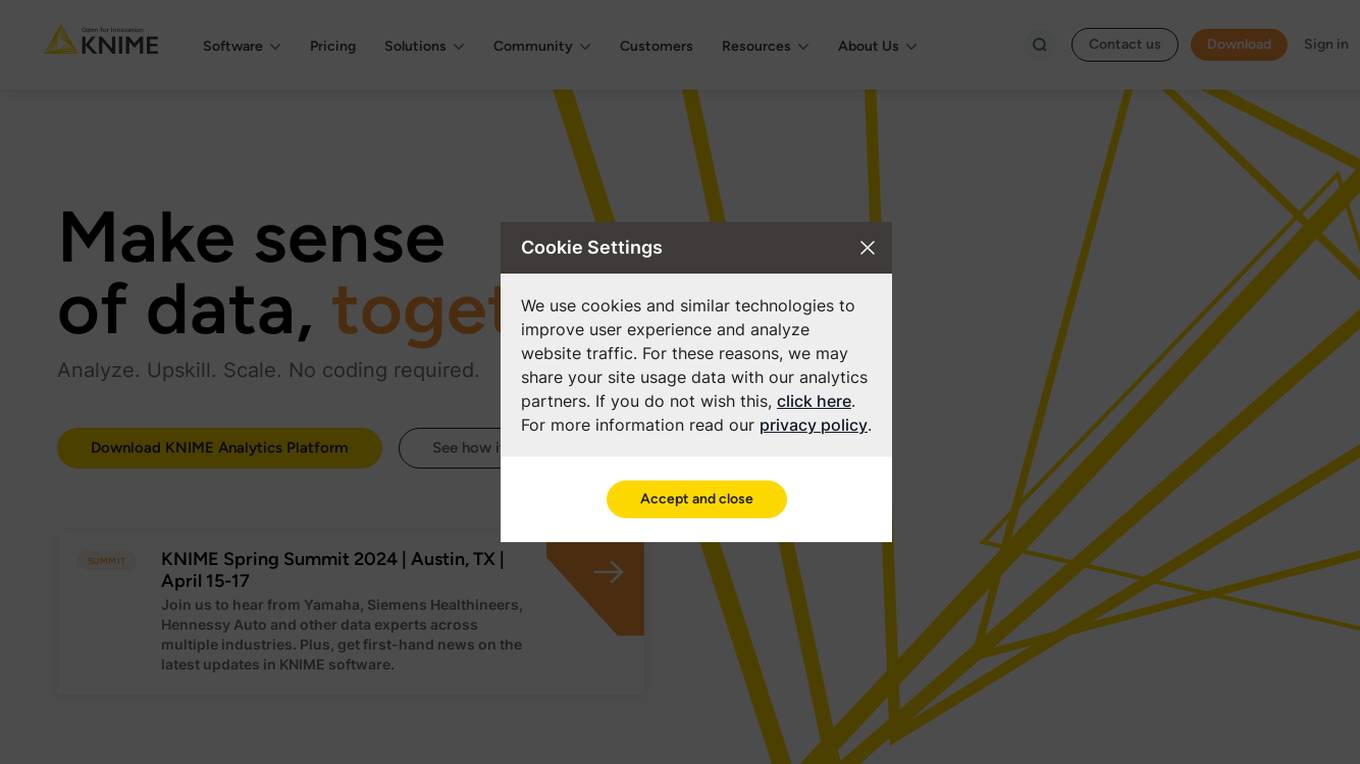
KNIME
KNIME is a data science platform that enables users to analyze, blend, transform, model, visualize, and deploy data science solutions without coding. It provides a range of features and advantages for business and domain experts, data experts, end users, and MLOps & IT professionals across various industries and departments.
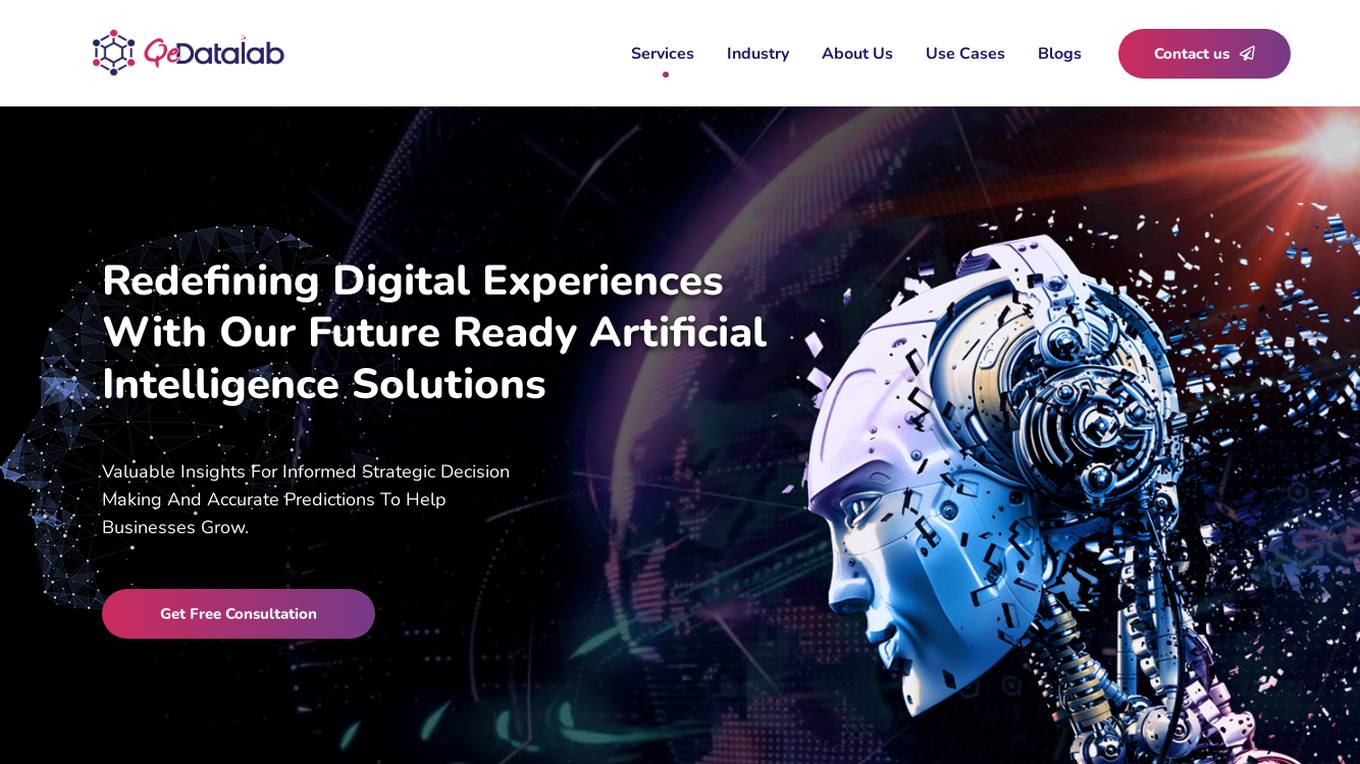
QeDatalab
QeDatalab is a leading data science consulting and AI company offering a wide range of services such as software consulting, generative AI consulting, artificial intelligence services, cloud enablement & automation, AI-driven mobile app development, IoT & IIoT data consulting, digital services, AI product development, MLOps consulting, and more. The company specializes in providing AI-powered solutions for industries like healthcare, manufacturing, retail, and education, helping businesses leverage data for informed strategic decision-making and accurate predictions. QeDatalab's team of experts offers end-to-end services, customized solutions, and a trusted partnership to ensure client success.
1 - Open Source Tools
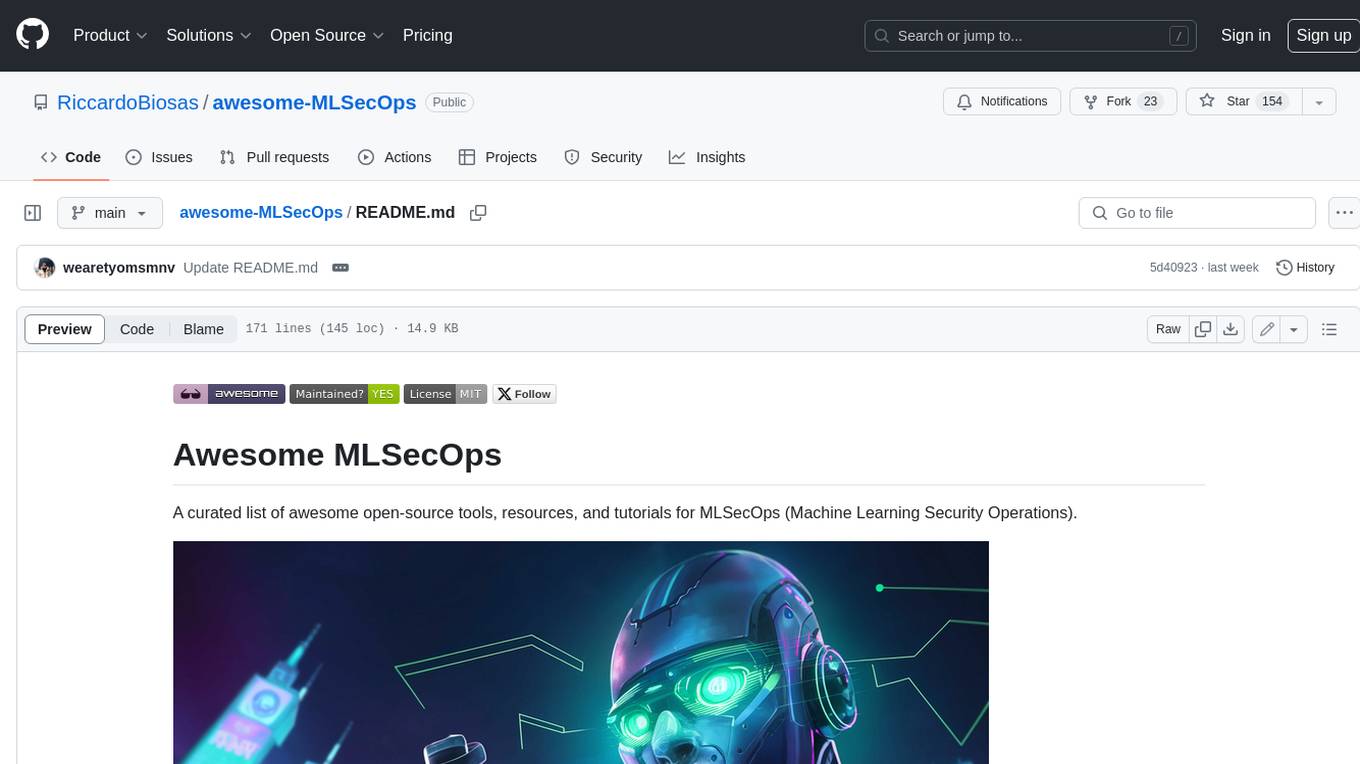
awesome-MLSecOps
Awesome MLSecOps is a curated list of open-source tools, resources, and tutorials for MLSecOps (Machine Learning Security Operations). It includes a wide range of security tools and libraries for protecting machine learning models against adversarial attacks, as well as resources for AI security, data anonymization, model security, and more. The repository aims to provide a comprehensive collection of tools and information to help users secure their machine learning systems and infrastructure.
